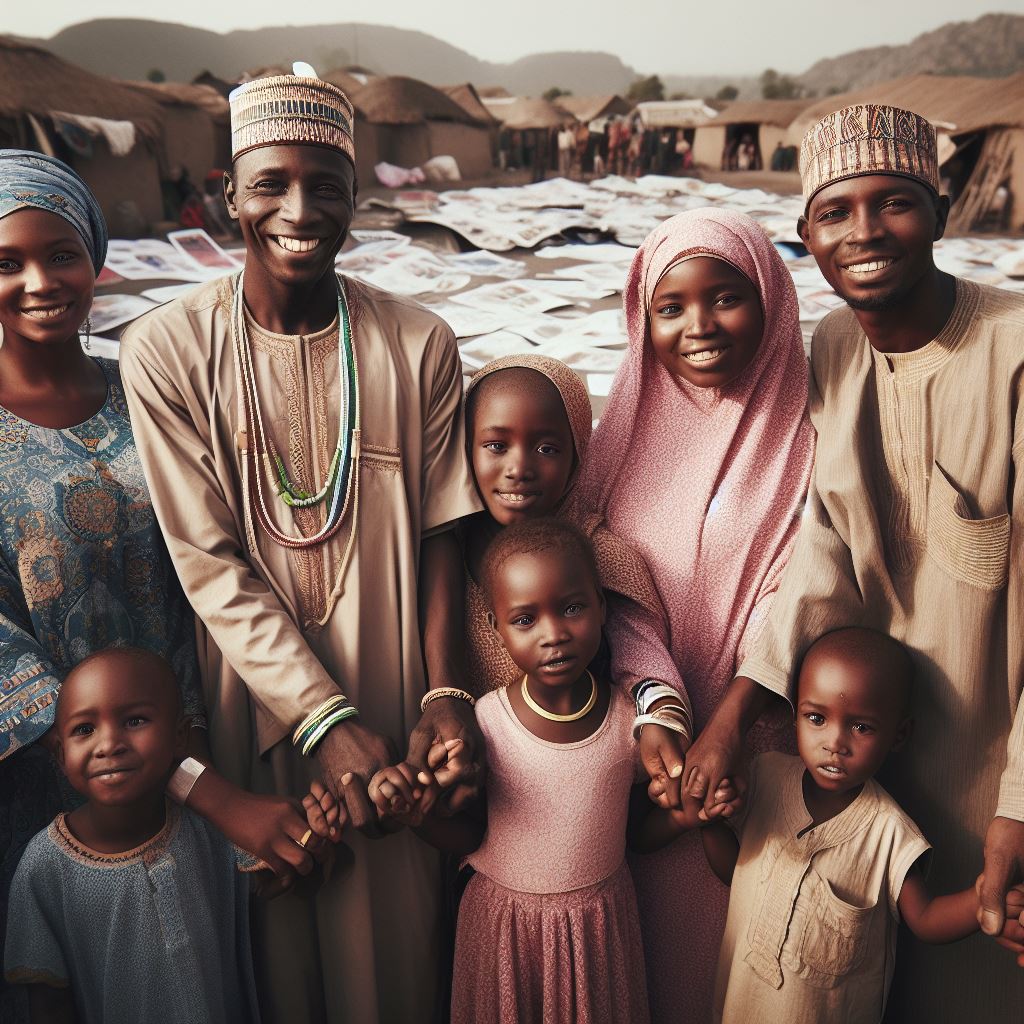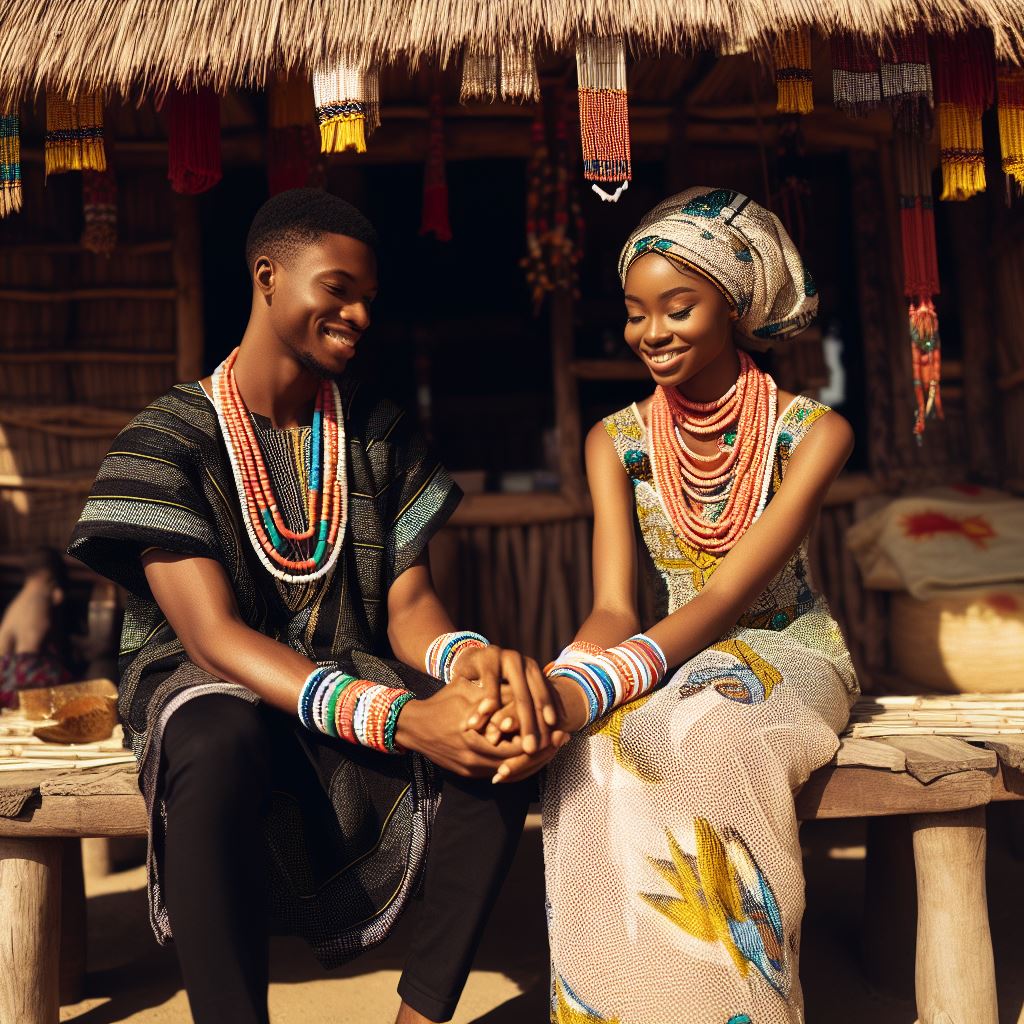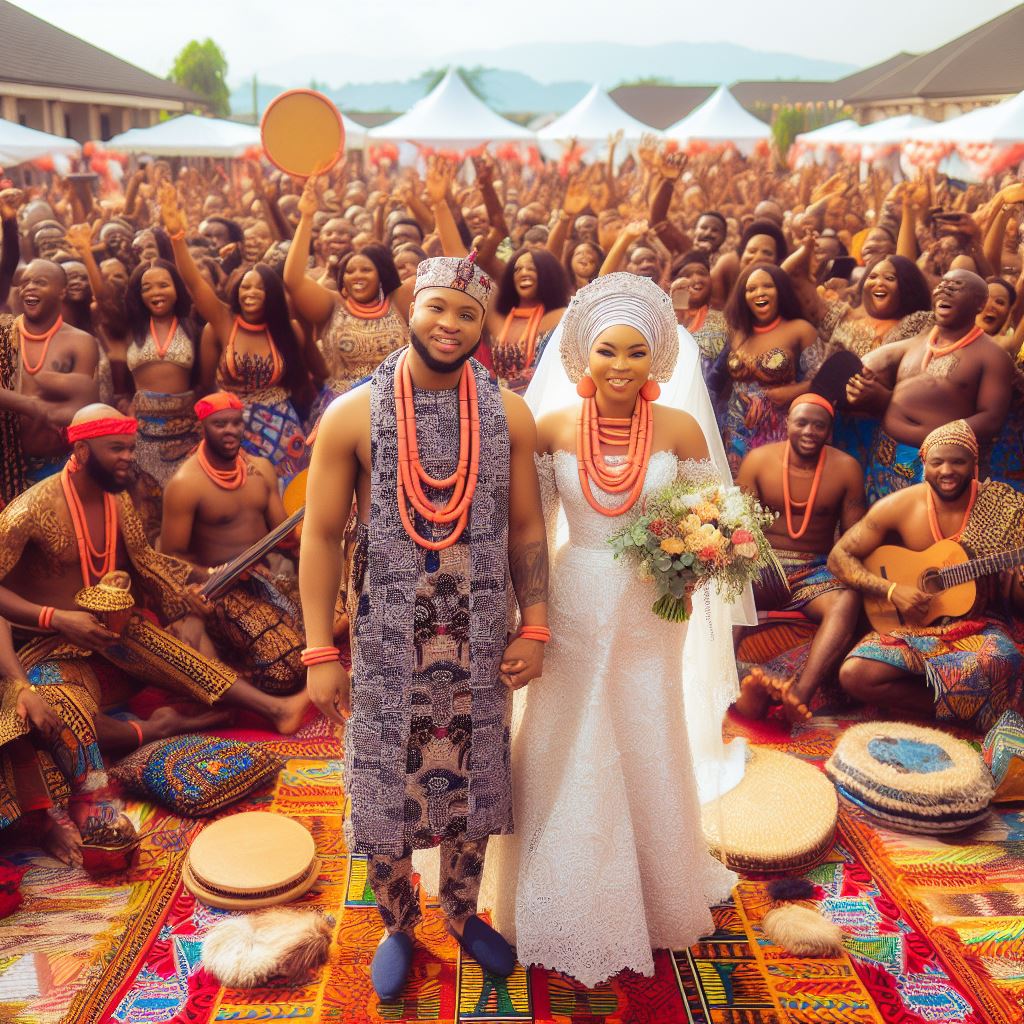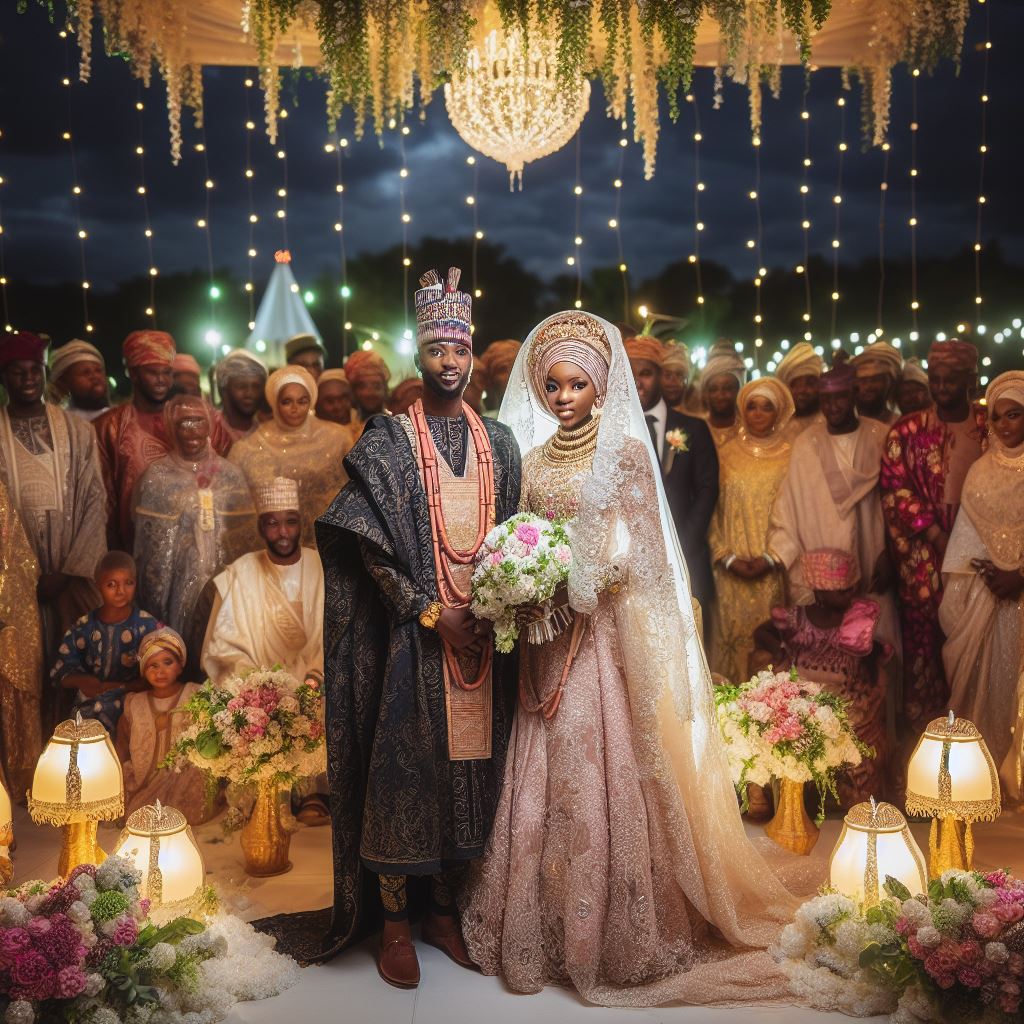Introduction
Let’s explore anniversary wishes: Infusing hausa traditions.
Anniversaries hold great importance in Nigerian culture as they symbolize the milestones achieved in relationships.
Hausa traditions are deeply rooted in Nigerian culture, and they play a vital role in marriage celebrations.
The Hausa people believe in upholding their customs and rituals, allowing them to preserve their cultural identity.
From the pre-wedding rituals to the elaborate wedding ceremonies, Hausa traditions ensure a memorable and meaningful celebration.
Their traditions include the Gaisuwa (bridal shower), Kamu (the groom’s ceremony), and Rikici (dowry presentation).
The Gaisuwa brings together women to shower the bride with gifts and marital advice, fostering unity among women.
The Kamu ceremony showcases the groom’s wealth and status, symbolizing his preparedness to take on the responsibilities of marriage.
The Rikici ceremony is where the groom presents gifts, including money and traditional items, to the bride’s family as a gesture of respect and appreciation.
These traditions create a strong bond between families and ensure that the marriage is rooted in cultural values.
By infusing Hausa traditions into anniversary celebrations, Nigerian couples can honor their heritage, strengthen their relationship, and promote cultural unity.
Incorporating elements like traditional attire, dances, and cuisine can make each anniversary a joyous and meaningful celebration of love and tradition.
By embracing and celebrating the rich Hausa traditions, Nigerian couples can ensure that their anniversaries become a cherished part of their cultural journey.
Background of Hausa Traditions
Explanation of the Hausa ethnic group and their customs
The Hausa ethnic group is one of the largest ethnic groups in Africa, primarily found in Nigeria, Niger, and Cameroon.
With a rich cultural heritage, they have customs deeply-rooted in their traditions.
Key customs of the Hausa ethnic group
- Kamu: This is the pre-wedding ceremony where the groom and his friends visit the bride’s family.
- Fatiha: The formal marriage ceremony takes place at the bride’s house, officiated by an Islamic cleric.
- Wuni: The newly married couple is welcomed into the groom’s house with a small reception.
- Kayan lefe: Traditional Hausa brides wear elaborate and colorful outfits adorned with intricate designs.
- Walima: The bride’s family hosts a grand reception to celebrate the union, which includes feasting and dancing.
Discussion of the key traditions observed during Hausa marriage ceremonies
Hausa marriage ceremonies hold great significance for the community, as they symbolize unity, love, and the continuation of their cultural heritage.
These ceremonies are marked by various traditions.
Key traditions observed during Hausa marriage ceremonies
- Takai: This is the traditional engagement ceremony where the groom’s family presents gifts to the bride’s family.
- Daurin Aure: Known as the “bridal shower,” it is a pre-wedding event filled with dances, songs, and blessings for the bride.
- Alkawari: A ceremony where the bride is dressed in symbolic clothes, showcasing her transition into married life.
- Henna Night: The bride’s hands and feet are adorned with beautiful henna designs, symbolizing good luck and fertility.
- Dancing and Drumming: Traditional dances like the “Sharo” and “Biki” are performed during the marriage ceremonies to celebrate the union.
These traditions are not only cherished by the Hausa people but also serve as a way to pass down their cultural heritage to future generations.
In fact, the Hausa ethnic group has a rich cultural heritage, and their marriage ceremonies are infused with age-old traditions.
From the pre-wedding rituals to the vibrant celebrations, these traditions are an integral part of their customs.
By upholding these traditions, the Hausa preserve their identity and forge lasting, cherished memories for generations.
Read: Real Stories: Nigerian Couples Who Chose to Marry Immediately
Incorporating Hausa Traditions into Anniversary Wishes
Importance of acknowledging and embracing cultural traditions
Cultural traditions play a significant role in our lives, connecting us to our roots, and shaping our identity.
When celebrating anniversaries, it is important to acknowledge and embrace these traditions to add a touch of authenticity and meaningfulness to the occasion.
As Hausa culture holds a significant place in Nigeria, infusing Hausa traditions into anniversary wishes can create a deeper connection and make the celebration more special for Hausa couples or those who appreciate the Hausa culture.
Suggestions on how to infuse Hausa traditions into anniversary wishes
Using traditional Hausa phrases and greetings
Incorporating Hausa language and phrases into anniversary wishes can add an authentic and heartfelt touch.
Phrases like “barka da sabon shekara” (happy anniversary) or “farin ciki” (forever) can be used to express good wishes and the desire for a long-lasting and blissful marriage.
Highlighting symbolic elements of Hausa weddings in the wishes
Hausa weddings stand out with vibrant hues, traditional garments, and cultural ceremonies
Including references to these symbolic elements in anniversary wishes can evoke nostalgia and create a sense of cultural pride.
Mentioning the striking bride’s attire, the Henna ceremony, or the traditional dances like “Kamu” or “Sarauniya” can add beauty and cultural significance to the wishes.
Incorporating Hausa traditional attire or motifs in anniversary greeting cards
Greeting cards are an excellent way to convey anniversary wishes. To infuse Hausa traditions, consider designing or choosing greeting cards that feature
Hausa traditional attire or motifs. The colors and patterns can represent the richness of the Hausa culture, making the wishes more visually appealing and culturally relevant.
By infusing Hausa traditions into anniversary wishes, couples can celebrate their love while also honoring their cultural heritage.
It shows a sense of pride in one’s roots and creates a unique and memorable anniversary experience.
In essence, cultural traditions are the threads that hold societies together.
Acknowledging and embracing these traditions during significant occasions like anniversaries adds depth and meaning to the celebration.
For Hausa couples or those who appreciate the Hausa culture, infusing Hausa traditions into anniversary wishes can create a stronger connection to their roots and make the celebration more special.
Whether it’s using traditional Hausa phrases, highlighting symbolic elements of Hausa weddings, or incorporating traditional attire and motifs, these efforts bring authenticity and cultural pride to the anniversary wishes.
So, let’s celebrate anniversaries with a touch of Hausa traditions and embrace the richness of our cultural heritage.
Barka da sabon shekara!
Read: Marriage Duas from the Quran and Hadith: A Compilation

Sample Anniversary Wishes Infused with Hausa Traditions
Example 1: “Ku yi amfani da ranar haihuwa a cikin zuciyoyin ku da kasancewa cikin kai ku. Allah ya kawo ku kyautata ra’ayoyi, lafiya, da kuma barkwanci.”
In this special day of celebration, may you find happiness and fulfillment in your marriage. May Allah bless you with wisdom, good health, and abundance.
Example 2: “Duk da wani abu ya fito a cikin zuciyoyi ku, ku fara jin dadi da ita. A gare ku, ku so waje a yau da kuma tare da rana.”
May your hearts overflow with love daily, cherishing each other, and may laughter and joy fill today and all your tomorrows.
Example 3: “A duniya da kuma lokacin, ku dora samun farin cikin gida ku da kuma dukkan tsoho da damuwa. Allah ya taimake ku a cikin zama mai kyau.”
May your home forever hold true happiness, with a life brimming with blessings and prosperity May Allah guide you in your journey together.
By infusing Hausa language and customs into anniversary wishes, you can add a touch of authenticity and depth to the heartfelt messages you share with your loved ones.
Here are anniversary wishes infused with Hausa traditions:
Example 1: “Ku yi amfani da ranar haihuwa a cikin zuciyoyin ku da kasancewa cikin kai ku. Allah ya kawo ku kyautata ra’ayoyi, lafiya, da kuma barkwanci.”
Translation: “On this day of celebration, may you find happiness and fulfillment in your hearts and in your union. May Allah bring you love, good health, and prosperity.”
Example 2: “Duk da wani abu ya fito a cikin zuciyoyi ku, ku fara jin dadi da ita. A gare ku, ku so waje a yau da kuma tare da rana.”
Translation: “May love fill your hearts, and may you always cherish it as it blossoms. May you desire each other today and forever.”
Example 3: “A duniya da kuma lokacin, ku dora samun farin cikin gida ku da kuma dukkan tsoho da damuwa. Allah ya taimake ku a cikin zama mai kyau.”
Translation: “In this world and at all times, may you find true happiness within your home and in all your endeavors. May Allah bless you in your journey together.”
Incorporate Hausa phrases to honor Hausa culture while sending warm anniversary wishes to loved ones.
It is a beautiful way to honor their heritage and strengthen the bond between you and the recipients.
Adding a touch of Hausa traditions to your anniversary wishes can make them more heartfelt and memorable.
Read: Marriage Duas in a Modern Context: Relevance and Use
Uncover the Details: Exploring Nigerian Wedding Vows and Their Meanings
Explore Further: Polygamy in Nigeria: A Historical and Modern Perspective
Celebrating Anniversaries with Hausa Customs
Exploring ways to celebrate anniversaries using Hausa customs
- Preparing traditional Hausa delicacies for the anniversary dinner.
- Dancing to popular Hausa music during anniversary parties or gatherings.
Discussing the significance of incorporating these customs in maintaining cultural heritage
Celebrating anniversaries holds great importance in many cultures around the world.
It is a time to reflect on the past, honor the present, and look forward to the future.
In the Hausa culture, anniversaries are not only an occasion to celebrate love and commitment but also an opportunity to preserve and showcase their rich traditions.
Incorporate Hausa traditions into anniversaries with a traditional dinner of Hausa delicacies.
Hausa cuisine are rich flavors, diverse dishes. Incorporating these dishes into the anniversary meal not only adds a cultural touch but also brings a sense of authenticity to the celebration.
From suya (grilled meat) to miyan kuka (baobab leaf soup) and jollof rice, the options are plenty to please everyone’s taste buds.
By infusing Hausa customs into anniversary celebrations, individuals not only celebrate their love and commitment but also maintain and preserve their cultural heritage.
In an ever-changing, interconnected world, it’s crucial to exalt and welcome diversity.
Infusing Hausa traditions into anniversary festivities is a means to cultivate cultural empathy and respect.
It provides a platform for people of varied origins to converge, exchange knowledge, and nurture a spirit of togetherness.
In general, celebrating anniversaries with Hausa customs brings a deeper meaning to these milestone occasions.
From preparing traditional Hausa delicacies to dancing to popular Hausa music, these customs add a sense of cultural richness and significance to the celebrations.
By incorporating these customs, individuals not only honor their heritage but also create lasting memories and strengthen their cultural identity.
So, let us embrace and celebrate the beauty of Hausa traditions in our anniversary festivities.
Read: Understanding Biblical Marriage: A Deep Dive into Genesis
Conclusion
Cultural traditions play a vital role in anniversary celebrations as they add depth and meaning to the occasion.
Embracing and infusing Hausa customs into anniversary wishes and celebrations can create a unique and memorable experience.




